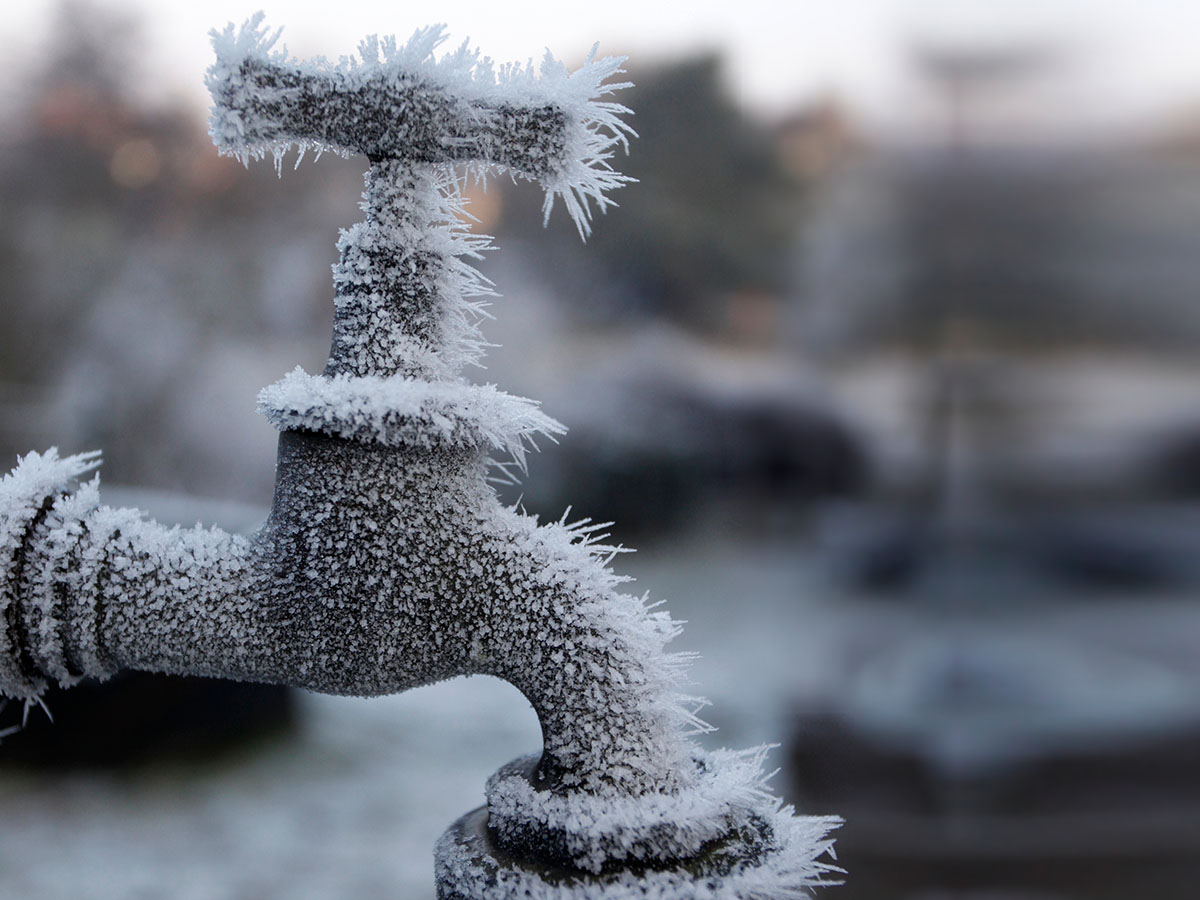We have come across this great article pertaining to How to Prevent Your Pipes From Freezing down the page on the internet and decided it made good sense to quickly share it with you in this article.

Cold weather can damage your pipes, particularly by freezing pipes. Here's how to prevent it from happening and what to do if it does.
Intro
As temperatures decrease, the danger of frozen pipelines rises, possibly resulting in costly repair services and water damage. Understanding exactly how to avoid frozen pipes is vital for homeowners in cold climates.
Understanding Icy Pipes
What creates pipelines to ice up?
Pipelines freeze when subjected to temperature levels listed below 32 ° F (0 ° C) for prolonged periods. As water inside the pipelines freezes, it broadens, taxing the pipe wall surfaces and potentially creating them to burst.
Dangers and damages
Icy pipelines can bring about water disruptions, property damages, and costly repair services. Ruptured pipelines can flood homes and create comprehensive structural damage.
Indications of Frozen Water Lines
Determining frozen pipes early can prevent them from bursting.
How to identify icy pipelines
Try to find reduced water flow from faucets, unusual smells or sounds from pipes, and noticeable frost on revealed pipes.
Prevention Tips
Shielding prone pipes
Cover pipes in insulation sleeves or make use of warm tape to protect them from freezing temperatures. Concentrate on pipes in unheated or external areas of the home.
Heating strategies
Keep interior spaces sufficiently heated up, particularly areas with plumbing. Open cabinet doors to allow cozy air to flow around pipelines under sinks.
Securing Outside Pipes
Yard hose pipes and outside taps
Disconnect and drain yard hoses prior to winter months. Install frost-proof faucets or cover outdoor faucets with insulated caps.
What to Do If Your Pipelines Freeze
Immediate actions to take
If you suspect icy pipelines, keep taps open up to ease stress as the ice thaws. Make use of a hairdryer or towels taken in warm water to thaw pipes slowly.
Long-Term Solutions
Structural changes
Take into consideration rerouting pipelines far from exterior wall surfaces or unheated locations. Add extra insulation to attics, cellars, and crawl spaces.
Updating insulation
Buy high-grade insulation for pipelines, attics, and wall surfaces. Correct insulation helps maintain consistent temperatures and decreases the danger of frozen pipes.
Conclusion
Stopping frozen pipelines requires proactive steps and quick feedbacks. By recognizing the causes, signs, and safety nets, house owners can safeguard their pipes throughout cold weather.
6 Proven Ways to Prevent Frozen Pipes and Protect Your Home
Disconnect and Drain Garden Hoses
Before winter arrives, start by disconnecting your garden hoses and draining any remaining water. Close the shut-off valves that supply outdoor hose bibs and leave the outdoor faucet open to allow any residual water to drain. For extra protection, consider using faucet covers throughout the colder months. It’s also important to drain water from any sprinkler supply lines following the manufacturer’s directions.
Insulate Exposed Pipes
Insulating your pipes is an effective way to prevent freezing. Pipe insulation is readily available at home improvement stores and is relatively inexpensive. Pay close attention to pipes in unheated areas such as the attic, basement, crawl spaces, or garage. Apply foam insulation generously to create a buffer against the cold. You can also wrap your pipes in heat tape or thermostat-controlled heat cables for added warmth.
Seal Air Leaks
Inspect your home for any cracks or openings that could let in cold air. Seal any holes around the piping in interior or exterior walls, as well as the sill plates where your home rests on its foundation. Additionally, make sure to keep your garage door closed unless you’re entering or exiting. Leaving it open creates a significant air leak that can lead to frozen pipes.
Allow Warm Air Circulation
During cold snaps, it’s essential to allow warm air to circulate evenly throughout your home. Leave interior doors ajar to promote better airflow. Open kitchen and bathroom cabinets to help distribute heat consistently around the rooms. If you have small children or pets, be sure to remove any household chemicals or potentially harmful cleaners from open cabinets for safety.
Let Faucets Drip
A small trickle of water can make a big difference in preventing ice formation inside your pipes. When temperatures drop significantly, start a drip of water from all faucets served by exposed pipes. This continuous flow helps prevent the water from freezing. Additionally, running a few faucets slightly can relieve pressure inside the pipes, reducing the chances of a rupture if the water inside does freeze.
https://choateshvac.com/6-proven-ways-to-prevent-frozen-pipes-and-protect-your-home/

Do you appreciate reading up on Prevent Frozen Pipes ? Put feedback further down. We'd be pleased to find out your reactions about this post. We hope that you come back again soon. Do you know another person who is enthusiastic about How To Avoid Freezing Pipes? Why not promote it. Kudos for your time. Kindly visit our website back soon.
Call Today
Comments on “Ways to Protect Pipes from Freezing: Specialist Advice”